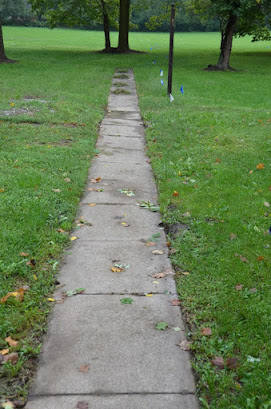The state auditor points to the phony-athlete admissions scandal, but also opaque other practices. A summary of the report is below. Exactly how the auditor's report might affect the upcoming vote to repeal Prop 209's ban on affirmative action is unclear.
SUMMARY
The University of California (university) is the most selective of the State’s public postsecondary institutions. The university relies on its campuses—which are bound by policies of its Board of Regents (Regents)—to make admissions decisions. This audit reviewed the general admissions practices of three campuses: the University of California, Berkeley (UC Berkeley), the University of California, Los Angeles (UCLA), and the University of California, San Diego (UC San Diego). It also examined the admission of athletes at those campuses and at the University of California, Santa Barbara. This report draws the following conclusions:
Campus Staff Took Advantage of Weaknesses in Admissions Processes to Inappropriately Admit 64 Students as Favors to Donors, Family, and Friends
We identified 64 applicants whom the four campuses admitted for academic years 2013–14 through 2018–19 based on inappropriate factors, including their families’ donations to the university and their relationships to campus staff. The majority of these applicants were white and at least half had annual family incomes of $150,000 or more. Campus staff used the campuses’ weak athletics admissions processes to admit 22 of these applicants, even though they possessed little athletic talent. In addition, UC Berkeley admitted 42 applicants through its regular admissions process based on their connections to donors and staff, while concurrently denying admission to others who were more qualified. The pervasiveness of this problem at UC Berkeley demonstrates that campus leadership has failed to establish a campus culture that values commitment to an admissions process based on fairness and applicants’ merits and achievements.
Campuses Lack Key Criteria and Standards to Support Their Admissions Decisions
UC Berkeley and UCLA do not have criteria for selecting applicants for admission, raising questions about why they have frequently admitted applicants whom their reviewers identified as less competitive while denying admission to applicants their reviewers more highly recommended. Additionally, UC Berkeley, UCLA, and UC San Diego lack adequate processes for identifying applicants who do not meet eligibility requirements for admission to the university.
Campuses Have Not Adequately Ensured That Reviewers and Faculty Consistently and Fairly Evaluate Applications
The campuses have not adequately trained or supervised the reviewers who rate applications. As a result, reviewers were sometimes overly harsh or overly lenient in the assessment of applicants, which made applicants’ chances of admission unduly dependent on which staff members evaluated their applications. Further, although the campuses allowed academic departments to have input in admissions decisions, the campuses provided little or no oversight of the processes that academic departments use when evaluating applications for majors in their departments, creating risk of improper influence on their recommendations of applicants for admission.
The Office of the President Has Not Safeguarded the University’s Admissions Process
The university’s Office of the President has not reviewed the campuses’ admissions processes to detect and prevent unfair or inconsistent practices. Instead, it has allowed weaknesses to persist for years. Further, the Office of the President has not monitored or encouraged high school participation in its program called Eligible in the Local Context, a critical university effort to increase campuses’ admission of disadvantaged high school students. Consequently, nearly 30 percent of eligible schools—more than 600 schools—in the State do not participate, resulting in thousands of high school students missing an opportunity to obtain guaranteed admission to the university.
Summary of Recommendations
Beginning with the admissions cycle for applicants applying for academic year 2021–22, the Office of the President should require all campuses to do the following:
- Before admitting prospective student athletes, verify their athletic talents and review donation records for indicators of inappropriate activity.
- Establish and follow predetermined criteria for how they will select the applicants they admit, including the circumstances under which they will admit an applicant whom their reviewers have determined to be less qualified than others they reject.
Beginning with the admissions cycle for academic year 2021–22, the Office of the President should oversee UC Berkeley’s admissions process for at least three admissions cycles to ensure that the campus provides a merit‑based admissions process that is free of improper influence.
By March 2021, the Office of the President should require that all campuses establish proficiency standards for application reviewers and monitor those reviewers’ ratings for consistency.
By April 2021, the Office of the President should begin regular audits of the campuses’ admissions processes to assess them for weaknesses, identify inappropriate admissions decisions, and recommend improvements.
At least annually, the Office of the President should assess its Eligible in the Local Context program to ensure that as many high school students as possible are able to participate.
Agency Comments
The Office of the President did not state whether it would implement our recommendations. Instead, it stated that the university is committed to safeguarding the integrity of its admissions practices, and that it would take prompt action to address the issues raised in our report.
Full report at https://www.auditor.ca.gov/pdfs/reports/2019-113.pdf





























